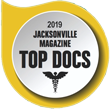Naltrexone was the first opiate-antagonist medication approved by the FDA for use in the treatment of alcoholism and opiate addiction. Some of the benefits of Naltrexone treatment are:
- Many patients experience dramatic reductions in cravings within hours of receiving their naltrexone.
- Naltrexone blocks the “high” and other effects associated with alcohol or opiate use thereby reducing the incentive to consume alcohol or opiates while on this medication
- Significant reductions in the rates of chemical relapse
- Can be given with other medications prescribed for depression and or other psychiatric conditions but not with prescription narcotic pain relievers
- Does NOT cause adverse Antabuse-like reactions when alcohol is consumed
- It is a valuable tool for assisting the process of recovery-but is not a cure in itself
“A significant proportion of alcoholics find it difficult to maintain initial treatment gains and eventually relapse to problematic drinking… these individuals can now be helped with naltrexone…” – Naltrexone And Alcoholism Treatment by the U.S. DEPARTMENT OF HEALTH AND HUMAN SERVICES [Treatment Improvement Protocol (TIP) Series 28]
Why does Naltrexone work? When a human drinks alcohol, a very complex chain reaction occurs. Soon after alcohol is consumed and travels into the blood system, it travels to the brain and stimulates the release of endorphins that subsequently bind to opioid receptors–these receptor sites can be compared to a message center, which directs all of our voluntary and involuntary commands.
The opioid receptor stimulation causes the release of dopamine in the pleasure center the brain. This creates the sense of well-being, the sense that problems and anxieties can be dealt with. Endorphins assist humans in dealing with stress, anxiety, self-esteem, patience, moodiness and social well-being.
As an individual continues to drink, over a longer time, the brain acclimates to the artificial stimulation of alcohol stimulating the release of endorphins. During the progression of this disease, endorphins production is slowed down and ultimately even shuts down as more and more alcohol is used. This makes the individual more and more dependent upon alcohol for endorphin production, not to feel good, but rather so that they do not feel bad.
Naltrexone helps to interrupt this vicious cycle. Within a very short period of Naltrexone ingestion, the craving and desire to consume alcohol is suppressed. For the first time in years, some alcohol dependent individuals feel relief from the overpowering urge to drink. Naltrexone helps address the neurobiological component of alcohol dependence, allowing Cognitive Behavior Therapy to work much sooner on the psychological and social aspects of the addiction.
LITERATURE
US Government Study Suggests Most Effective Alcoholism Treatments – Naltrexone, Counseling and Medical Management – The study, published in the Journal of the American Medical Association, showed that patients that received Naltrexone, specialized alcohol counseling, or both had the best drinking outcomes after 16 weeks of alcohol outpatient treatment. All of the patients in the study also received Medical Management — an intervention consisting of nine brief, structured outpatient sessions provided by a health care professional.
The National Institute on Alcohol Abuse and Alcoholism (NIAAA) launched COMBINE in 2001 to identify the most effective current treatments and treatment combinations for alcohol dependence. It is one of the largest clinical trials conducted of pharmacologic and behavioral treatments for alcohol dependence. The COMBINE study was conducted at 11 academic sites that recruited and randomly assigned 1,383 recently abstinent, alcohol-dependent patients to one of nine treatment groups.
COMBINE Study Highlights (after 16 weeks):
- All groups substantially reduced drinking during treatment. Overall percent days abstinent tripled, from 25 to 73 percent, and alcohol consumption per week decreased from 66 to 13 drinks, a decrease of 80 percent
- Patients who received medical management plus either Naltrexone or specialized counseling showed similarly improved outcomes (PDA= 80.6 percent and 79.2 percent, respectively), compared with patients who received medical management and placebo pills (75.1 percent)
- Patients who received Naltrexone reported less craving for alcohol
“Naltrexone Specialized Alcohol Counseling an Effective Treatment for Alcohol Dependence When Delivered with Medical Management” – National Institute on Alcohol Abuse and Alcoholism – Tuesday, May 2, 2006
The medication Naltrexone and up to 20 sessions of alcohol counseling by a behavioral specialist are equally effective treatments for alcohol dependence when delivered with structured medical management, according to results from “Combining Medications and Behavioral Interventions for Alcoholism” (The COMBINE Study). Results from the National Institutes of Health-supported study show that patients who received Naltrexone, specialized alcohol counseling, or both demonstrated the best drinking outcomes after 16 weeks of outpatient treatment.


















